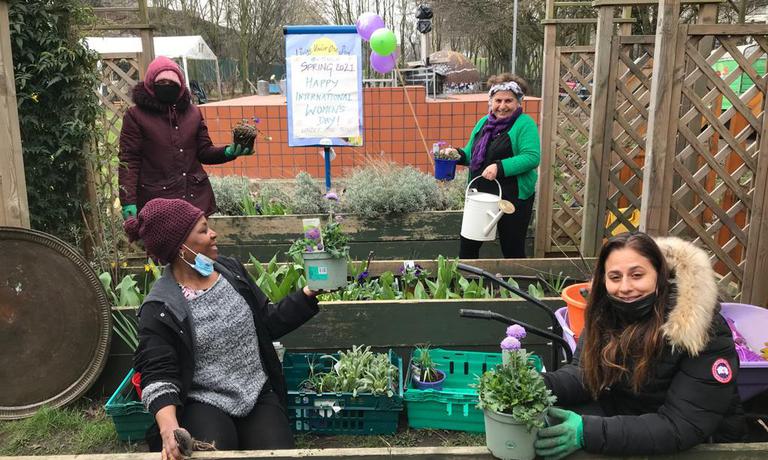Women and girls face disadvantage in almost all the areas that are known to affect health. Women and girls face inequalities in jobs and income, for example through the gender pay gap, as well as in other areas including social connections, housing and education.
This inequality is worse for women and girls in other disadvantaged groups: refugees and asylum seekers, disabled women and girls, minority ethnic women and girls and LGBTQ+ women and girls.
Women and girls are more likely to have insecure or part-time jobs, or to be affected by workplace discrimination and stereotyping. Women do most of the unpaid care work and unpaid childcare. This all adds up to reduced income during working life and beyond, with above-average gender pay and pensions gaps compared to the EU.
The Covid-19 pandemic disproportionately affected women financially; they were more vulnerable to job losses, are more likely to be Universal Credit recipients, to take up more caring responsibilities and to work in frontline ‘essential worker’ jobs. Job losses affected disabled mothers the worst, while financial insecurity and food poverty affected single parents badly – 90% of whom are women. Lockdown also brought an increase in demand for domestic violence services.

Stating the facts
- Women spend a quarter of their lives in ill health or disability, compared to a fifth for men.
- Over a quarter (26%) of young women in the UK experience a common mental disorder, such as anxiety or depression, compared to 9.1% of young men.
- Across England as a whole average rents take 43% of women’s earnings and 28% of men’s.
Those that have found work sometimes have to travel miles to get to their jobs which are often low paid. During the pandemic, this has meant using public transport, even though they didn’t feel safe doing so. Being able to cycle to work has given them another option.
Leyla Laksari
Chief Executive Officer for Living Under One Sun
Our work with women and health
Many of the projects we fund are run by and for women, tackling the barriers to good health by improving social connections, developing skills and growing community power. These range from groups for mothers with mental health problems to projects involving women who are migrants, refugees, or from communities experiencing racial inequity.
Some groups are aimed specifically at women in communities where women are underrepresented in community action or find it more difficult to access local services, activities and opportunities. These projects can focus on practical skills for employability, educational attainment, or boosting confidence and independence.


Welcome Women
Living Under One Sun was created in 2005 by a group of mothers from different cultures who wanted to feel less isolated, improve their area, and make their neighbourhood feel safer. The Welcome Women project expands on ongoing activities such as growing food.
The research on women and health
United Nations Convention on the Elimination of All Forms of Discrimination Against Women (UN CEDAW), Concluding observations on the eighth periodic report of the United Kingdom of Great Britain and Northern Ireland (Mar 2019)
Confronting Gender Inequality, LSE Commission on Gender, Inequality and Power, London School of Economics (2015)
Women’s equality in England, Women’s Resource Centre (2018)
A year of lockdown, Refuge (2021)
Unequal impact? Coronavirus and the gendered economic impact, House of Commons Women and Equalities Committee (Jan 2021)
Women and employment during Covid-19 (Women’s Budget Group (2021)
